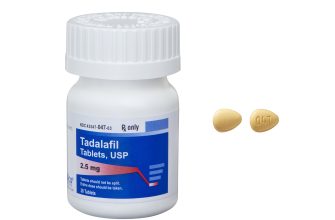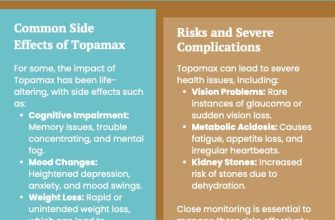Never combine fluoxetine (Prozac) and diphenhydramine (Benadryl) without consulting your doctor. This is crucial for your safety and well-being. While seemingly unrelated, these medications can interact in unpredictable ways, potentially leading to adverse effects.
Specifically, combining these drugs can increase drowsiness significantly. This heightened sedation poses risks, particularly while driving or operating machinery. You might also experience dizziness, confusion, or impaired coordination. These side effects can impact your daily activities and even your safety.
Your doctor can assess your individual health profile and medication history to determine if a combined use is possible and, if so, adjust dosages accordingly or suggest alternative treatments to minimize potential risks. Open communication with your healthcare provider is paramount.
Remember: This information is for guidance only and does not replace professional medical advice. Always seek personalized guidance from a qualified healthcare professional before altering your medication regimen.
- Fluoxetine and Benadryl: Understanding the Interaction
- Increased Sedation Risk
- Other Potential Interactions
- Recommendations
- When to Seek Medical Advice
- Potential for Increased Sedation
- Drug Interaction and Metabolism
- Considering Combined Use: When it Might Be Necessary
- Situations Requiring Careful Consideration
- Important Considerations for Combined Use
- Alternative Approaches
- Precautions and Advice for Patients
- Managing Side Effects
- Alcohol and Other Substances
- Missed Doses
Fluoxetine and Benadryl: Understanding the Interaction
Combining fluoxetine (Prozac) and diphenhydramine (Benadryl) can lead to increased drowsiness and sedation. This is because both medications affect the central nervous system.
Increased Sedation Risk
Fluoxetine inhibits serotonin reuptake, while diphenhydramine blocks histamine receptors. This combination can enhance the sedative effects of each drug, potentially resulting in excessive sleepiness, impaired coordination, and difficulty concentrating.
- Avoid driving or operating machinery: The combined effect significantly reduces alertness and reaction time.
- Monitor for excessive sleepiness: This is a key indicator of a potentially dangerous interaction.
- Consider lower dosages: If you must use both medications, discuss lower doses with your doctor.
Other Potential Interactions
While increased sedation is the primary concern, other interactions are possible, though less common. These may include:
- Anticholinergic effects: Benadryl’s anticholinergic properties can be amplified by fluoxetine, potentially leading to dry mouth, constipation, or blurred vision.
- Cardiovascular effects: Though rare, a combination of both drugs may, in very sensitive individuals, influence heart rate or blood pressure.
Recommendations
Always inform your doctor or pharmacist about all medications you are taking, including over-the-counter drugs like Benadryl. Open communication is vital for safe medication management. Never adjust dosages without consulting a healthcare professional.
When to Seek Medical Advice
Seek immediate medical attention if you experience severe drowsiness, dizziness, confusion, irregular heartbeat, or any other concerning side effects after combining fluoxetine and diphenhydramine.
Potential for Increased Sedation
Combining fluoxetine and diphenhydramine (Benadryl) can significantly increase drowsiness. Diphenhydramine is a potent antihistamine with sedative properties. Fluoxetine, while not primarily a sedative, can cause fatigue in some individuals. This additive effect means you might experience significantly more sleepiness than with either medication alone.
Be cautious when operating machinery or driving after taking both medications. Avoid activities requiring alertness until you understand how the combination affects you.
If you experience excessive drowsiness, consult your doctor. They might adjust your medication dosages or suggest alternative treatments. Always inform your healthcare provider about all medications you are taking, including over-the-counter drugs.
Monitor your sleep patterns and report any unusual changes to your doctor. Proper hydration and a healthy sleep schedule may help mitigate some sleepiness, but this is not a substitute for medical advice.
Remember, individual responses to medications vary. What affects one person may not affect another. Observe your body’s response carefully and communicate any concerns to your physician promptly.
Drug Interaction and Metabolism
Fluoxetine, a selective serotonin reuptake inhibitor (SSRI), primarily metabolizes via the liver’s cytochrome P450 system, specifically CYP2D6. Benadryl (diphenhydramine) also undergoes hepatic metabolism, although through a different pathway. This difference generally minimizes direct interactions.
However, both drugs can affect the central nervous system (CNS). Combining them may increase drowsiness and sedation, especially in individuals sensitive to either medication. Monitor for this side effect. Avoid driving or operating machinery if you experience excessive sleepiness.
While a significant drug-drug interaction is unlikely, individual responses vary. CYP2D6 activity varies considerably among individuals. Those with reduced CYP2D6 activity may experience increased fluoxetine levels, potentially intensifying its effects, including the risk of serotonin syndrome when combined with diphenhydramine. This is a rare but serious event characterized by high fever, agitation, and muscle rigidity.
Consult your doctor or pharmacist before combining fluoxetine and diphenhydramine. They can assess your individual risk and adjust dosages accordingly. Open communication about any side effects experienced is crucial for safe medication use.
Always follow prescribed dosages and never exceed recommended amounts. If you experience any concerning symptoms, contact medical professionals immediately.
Considering Combined Use: When it Might Be Necessary
Consult your doctor before combining fluoxetine and diphenhydramine (Benadryl). This combination is rarely recommended but might be considered in very specific circumstances. For instance, if you experience significant anxiety alongside fluoxetine-related insomnia, a low dose of diphenhydramine might be prescribed for short-term sleep aid. Your physician will weigh the potential benefits against the risks, considering your overall health and medical history.
Situations Requiring Careful Consideration
Severe insomnia: If fluoxetine-induced insomnia severely impacts your daily life, your doctor may explore diphenhydramine as a temporary solution. They’ll likely start with the lowest effective dose and monitor you closely for adverse effects. Expect a temporary solution, not a long-term strategy.
Important Considerations for Combined Use
Anticholinergic effects: Diphenhydramine possesses anticholinergic properties, which can interact negatively with fluoxetine or other medications you take. Dry mouth, constipation, and blurred vision are potential side effects. Your doctor will carefully assess if these risks outweigh the benefits. Drowsiness: Both fluoxetine and diphenhydramine can cause drowsiness. The combined effect might lead to significant daytime sleepiness, impacting your work or daily activities. Careful monitoring and dose adjustment are necessary.
Alternative Approaches
Non-pharmacological approaches: Before considering combined medication, your doctor may suggest lifestyle changes to improve sleep, such as consistent sleep hygiene, regular exercise, and a relaxing bedtime routine. Alternative medications: If sleep problems persist, your doctor might explore other sleep aids that don’t carry the same risk profile as diphenhydramine when used with fluoxetine.
Precautions and Advice for Patients
Always inform your doctor about all medications you are taking, including over-the-counter drugs like Benadryl, before starting fluoxetine. This includes herbal supplements and vitamins.
Expect drowsiness as a potential side effect when combining fluoxetine and Benadryl. Avoid driving or operating machinery until you know how the combination affects you.
Report any unusual changes in mood, behavior, or sleep patterns to your doctor immediately. This is particularly important in the first few weeks of treatment.
Managing Side Effects
Drink plenty of fluids to counteract potential dry mouth from Benadryl. Consider using sugar-free lozenges or chewing gum if dry mouth is bothersome.
If you experience constipation, increase your fiber intake and drink more water. If constipation persists, consult your physician.
Alcohol and Other Substances
Avoid alcohol while taking fluoxetine and Benadryl. Alcohol can intensify the sedative effects of both medications, increasing the risk of drowsiness and impaired judgment.
Consult your doctor before taking other sedatives or medications that may cause drowsiness with fluoxetine and Benadryl. They can help you assess potential interactions.
Missed Doses
If you miss a dose of fluoxetine, take it as soon as you remember unless it’s almost time for your next dose. Do not double the dose to make up for a missed one.
Follow your doctor’s instructions precisely regarding both fluoxetine and Benadryl dosage. Never alter the prescribed dosage without consulting your physician.










